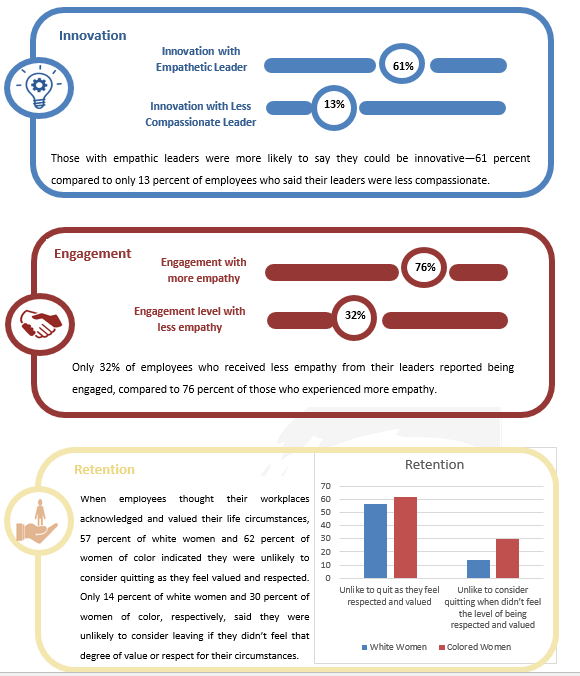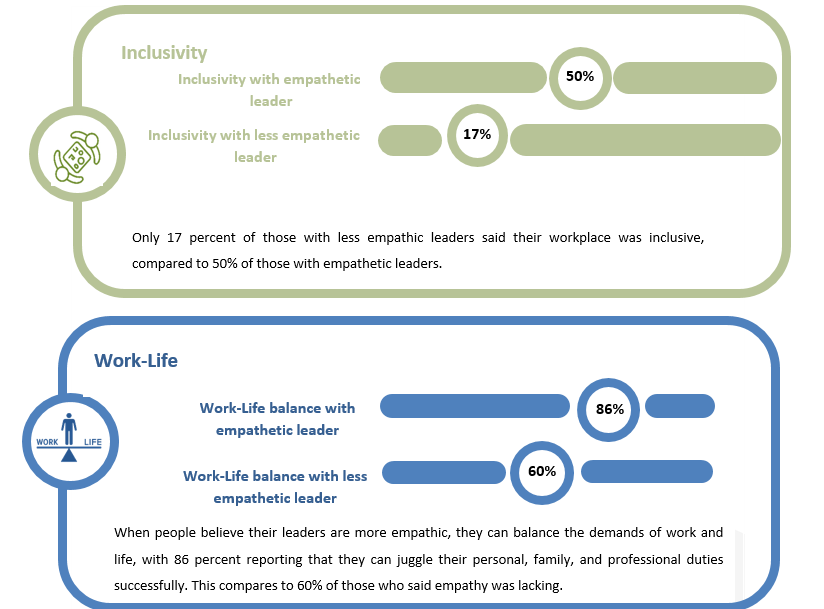What is Empathy and Why It is Important in Leadership
What is Empathy?
According to the Merriam-Webster Dictionary, empathy is:
Understanding, being aware of, being sensitive to, and vicariously experiencing the feelings, thoughts, and experiences in the past or present without such feelings, thoughts, and experiences being fully transmitted in an objectively explicit manner; also: the potential for this.
Empathy is “a multidimensional construct utilized to account for the capacity to share and understand the thoughts and feelings of others,” according to a recent neuroscience article (Decety & Yoder, 2016).1
What is an Empathetic Leader?2
Empathetic Leadership is characterized by a profoundly concerned leader about his team members’ lives, challenges, interests, and overall feelings. This type of leader tries to comprehend their circumstances and what they are going through to provide support and assistance. Although not all sympathetic leaders practice servant Leadership, empathy is an essential component of it.
Overall, an empathetic leader engages with others to feel comfortable and cared for and have a trusting relationship.
The Workplace is Stressful3
According to a study published in Occupational Health Science, our sleep is harmed when we are anxious at work. Employees who receive disrespectful emails at work are more likely to experience negativity and spill over into their personal lives, particularly with their spouses, according to research from the University of Illinois. Furthermore, a Carleton University study discovered that when people face incivility at work, they feel less capable of parenting.
Performance, Turnover, and Customer Experience are all crucial factors to consider. According to a study published in the Academy of Management Journal, when people are treated rudely at work, their performance declines, and they are less willing to help others. According to a recent Georgetown University study, workplace incivility is on the rise. The consequences are wide-ranging, including decreased performance and collaboration, deteriorated customer experiences, and more significant attrition.
The Empathetic Leadership Role in Turning around the Impact of Stress
However, when we are going through difficult times, dealing with burnout, or struggling to find happiness at work, empathy may be a potent antidote that contributes to great experiences for individuals and teams. Empathy has several significant positive impacts, according to a new Catalyst study of 889 employees:


1 Positive Psychology, 4 Jun 2021, Joaquín Selva, Bc.S., Psychologist, understanding Empathy: what is it and why is it important in counseling, Accessed 16 Oct 2021, https://positivepsychology.com/empathy/
2Better Up, 12 Feb 2021, Alexia Roncero, Empathetic Leadership: are empathetic leaders born or made?, Accessed 14 Oct 2021, https://www.betterup.com/blog/empathetic-leadership
3Forbes, 19 Sep 2021, Tracy Brower, Empathy is the most important leadership skill According to Research, Accessed 17 Oct 2021, https://www.forbes.com/sites/tracybrower/2021/09/19/empathy-is-the-most-important-leadership-skill-according-to-research/?sh=203627ed3dc5
For more about this topic, download our latest book "Empathy: The Essential Workplace Ingredient" for FREE:
